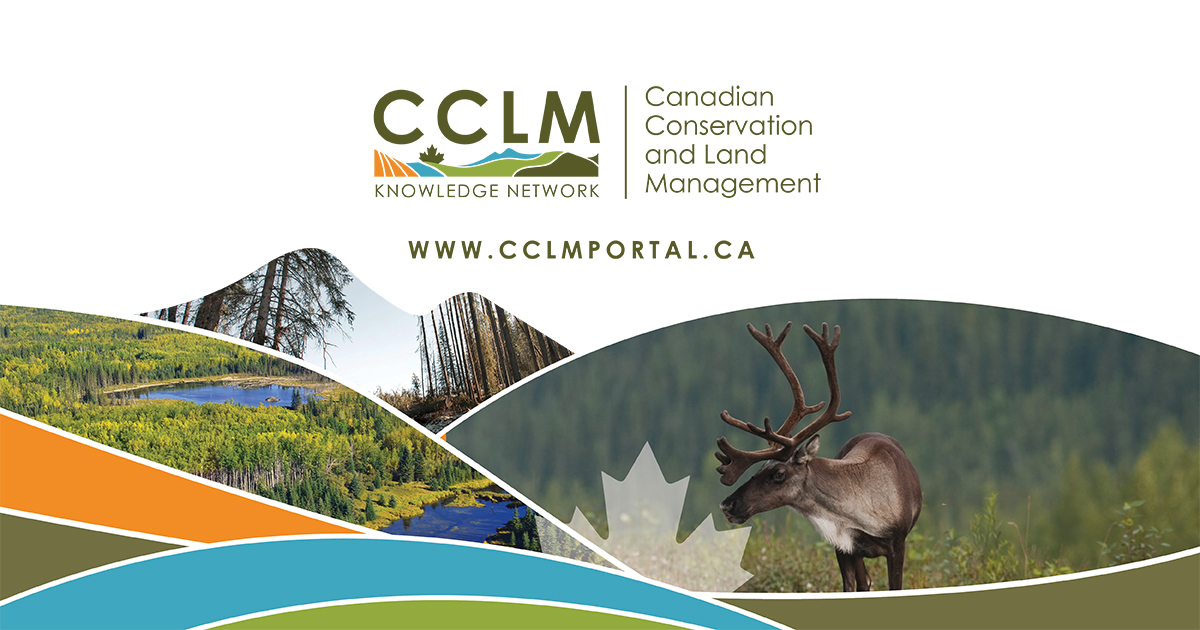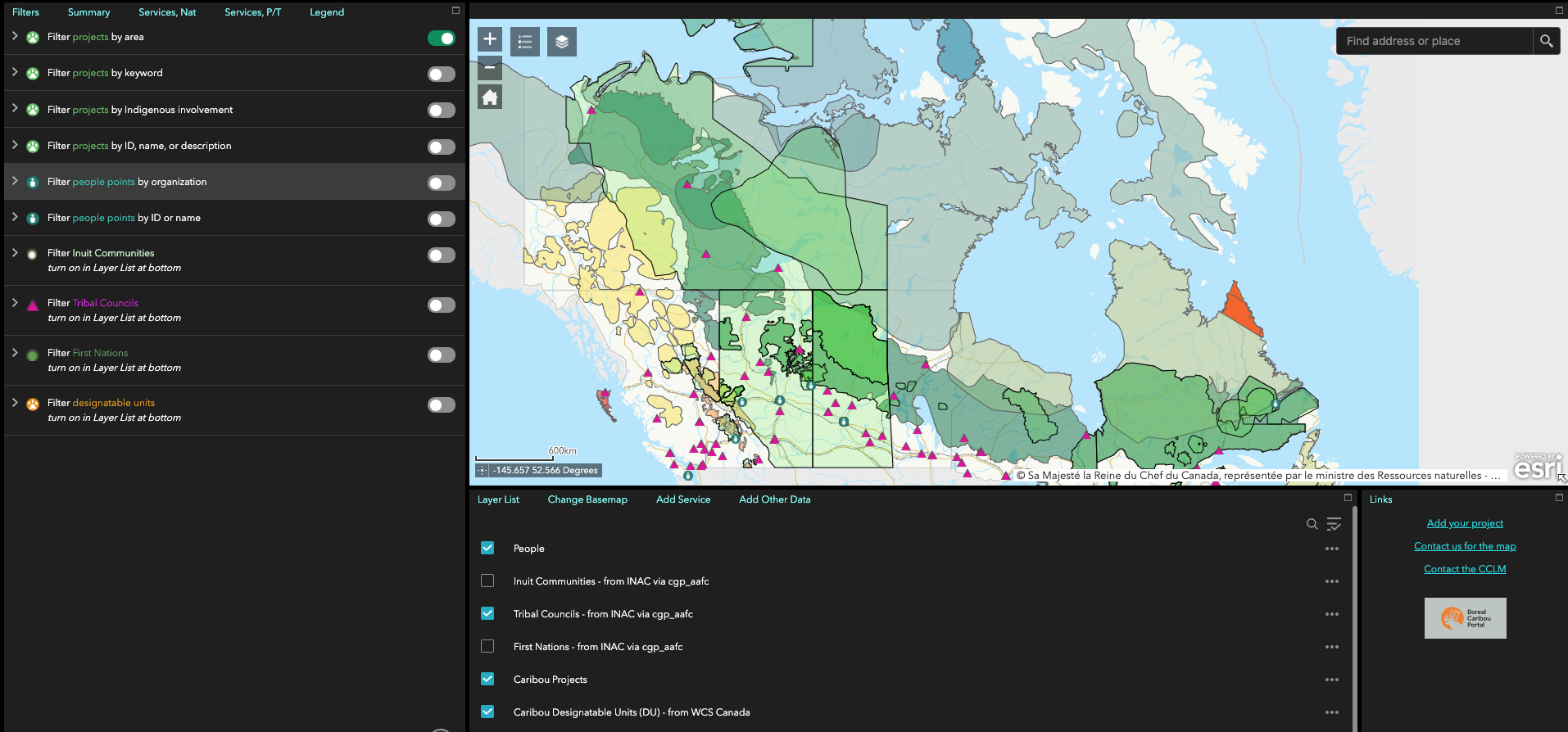Cross-Canada Collaboration Launches New Website to Improve Conservation and Land Management

EDMONTON, AB, May 12, 2020 – The Canadian Conservation and Land Management (CCLM) Knowledge Network, a network of organizations from across Canada, has launched the CCLM Portal, a new web platform that supports ongoing Canada-wide efforts in conservation and land management (www.cclmportal.ca). The portal was born from a multi-sector need for coordinated knowledge exchange that serves to improve land management solutions.
“When people launch land management, reclamation, or conservation projects, they search for resources from other parties to help inform their decisions,” says Bev Gingras, Head of Boreal Conservation Programs at Ducks Unlimited Canada and a key initiator of the CCLM. “There’s a vast amount of work being done in these areas, but the information is often too widespread or exists in silos, making it difficult to find.”
“If practitioners don’t have access to the tools and resources available to them, they can miss out on a lot of opportunities to advance their work. We need to work together to achieve Target 1,” says Gingras, referring to Canada’s commitment to the United Nations Convention on Biodiversity to conserve 17% of our land and freshwater by 2020.
What is it?
The CCLM Portal aims to solve these problems by becoming a one-stop, centralized, go-to website for reliable land management and conservation resources. Housing hundreds of high-quality, relevant resources – including an interactive map of caribou projects – and featuring powerful search functions, the portal is designed to grow communities of practice and to facilitate knowledge exchange among land managers.
Users can explore its current sub portals – wetland knowledge, boreal caribou, and land management – and it allows for the expansion of more themes as the communities of practice grow. It is about connecting people and organizations to the information they need – and to one another.
Who is involved?
The portal is made possible by the Canadian Conservation and Land Management (CCLM) Knowledge Network – an innovative collaboration of five Canadian organizations. Each are leaders in their respective fields. They are Ducks Unlimited Canada, InnoTech Alberta, National Boreal Caribou Knowledge Consortium (NBCKC, coordinated by Environment and Climate Change Canada (ECCC), Natural Resources Canada’s Canadian Forest Service, and the Northern Alberta Institute of Technology’s (NAIT) Centre for Boreal Research.
“Being a CCLM collaborator enables us to coordinate conservation efforts and improve resource sharing,” says Matt Boeckner, CCLM Knowledge Network Chair and Section Head in the Science and Technology Branch of ECCC.
“Through features like our interactive map of caribou projects and resource library, we’re creating the one-stop-shop for users to learn about projects underway across the country and connecting them with the people involved with these projects.”
Get involved
More organizations are getting involved as they recognize how the portal facilitates the implementation of policies and practices that support collective conservation and land management goals across Canada. Organizations like Canada’s Oil Sands Innovation Alliance and Grande Prairie Regional Innovation Network have already become CCLM supporters.
“As organizations across Canada address challenges related to conservation and land management, we hope more groups will actively share their resources through the portal,” says Kevin Kemball, Director of Business Development at NAIT’s Centre for Boreal Research. “This is how we can have the biggest impact.”
Any individuals or organizations interested in getting involved with the CCLM Knowledge Network, or contributing resources, can reach out to connect@cclmportal.ca.
###
Other Resources
Every Land Manager in Canada Needs the CCLM Portal. Here’s Why.
Ducks Unlimited Canada (DUC) delivers wetland conservation that benefits every Canadian. We keep the water in your lakes and rivers clean. We protect your community from the effects of flood and drought. We save wildlife and special natural places. We use science to find solutions to the most important environmental issues of the day and we collaborate with people who are helping create a healthier world. The wetlands we save aren’t just for ducks; they’re for all of us.



